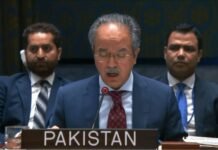Over the years, West Africa has secured global attention due to the incessant violent conflicts prevalent across the region. The conflicts in West Africa are dynamic, varying in structural root causes, escalation patterns, intensity, and tractability. However, national and international responses to address these conflicts seem to have been defied.
National Response to Conflict
In the context of the national response, some regional central governments have attempted to initiate peace processes and stabilize the region.
For example, in the case of the Alavanyo-Nkoya conflict in Southeast Ghana, the government called both parties for negotiation and agreement. Unfortunately, this effort proved to be abortive as both sides remained uncompromising and unwilling to embrace peace.
Similarly, Nigeria provides a similar case study. The Northern regional governments’ efforts to adopt a non-violent approach to achieve peace and dowse the tension caused by bandits failed to materialize.
From 2017-2020, some regional governments in Northern Nigeria granted amnesty to imprisoned ‘repentant’ members of bandit groups as part of a peace deal, hoping it would pacify them and lead to their abstinence from violent attacks and armed rebellion. However, this attempt proved abortive, as bandit attacks still challenge the country.
This scene of futility also applies to many other countries in the West African region in their efforts to stabilize the region and consolidate peace.
Youth Unemployment and its Role in Conflict
A consistent feature of violent conflicts in West Africa is youth involvement as participants and perpetrators. This raises the question of why the youth? According to the African Union, Africa has over 400 million young people, accounting for over 65% of the African population.
Furthermore, data from the World Bank shows that youths account for 60% of Africa’s joblessness. This suggests that the high unemployment rate among youth in the West African region has conditioned them to be liable and easily incentivized by political opportunists and extremists to carry out politically induced attacks.
Moreover, the idle and unengaged state of unemployed youth affords them the time and possibility of involving themselves in violent acts and the economic incentives they derive from doing so. Due to the government’s failure to address unemployment, some aggrieved youth often resort to violence as a means of protest and vengeance.
Conclusion: Addressing Youth Unemployment as a Path to Peace
If the saying is true that “an idle mind is the devil’s workshop,” then the West African governments must pay adequate attention to the issue of youth unemployment by providing employment opportunities for the youth and bringing up entrepreneurial and business innovation.
Additionally, policymakers in the West African region must develop policy frameworks to tackle the problem of prevalent youth unemployment across the region as part of their efforts to address violent conflicts and consolidate peace.
**The views expressed in this article are those of the author and do not necessarily reflect the views of The Diplomatic Insight. The organization neither endorses nor assumes any responsibility for the content of this article.
Testimony Omole is a Conflict Analyst at the Conflict Research Consortium for Africa. He is an alumnus of the Department of Political Science, Kogi State University, Anyigba, Nigeria. He was awarded the 2022 Certificate of Excellent Performance by the Knowles Educational and Charitable Trust for International Leadership, Atlanta, USA. His research interests include conflict, the nexus between conflict and poverty, and the role education plays in peacebuilding. Email: omoletestimony2016@gmail.com







